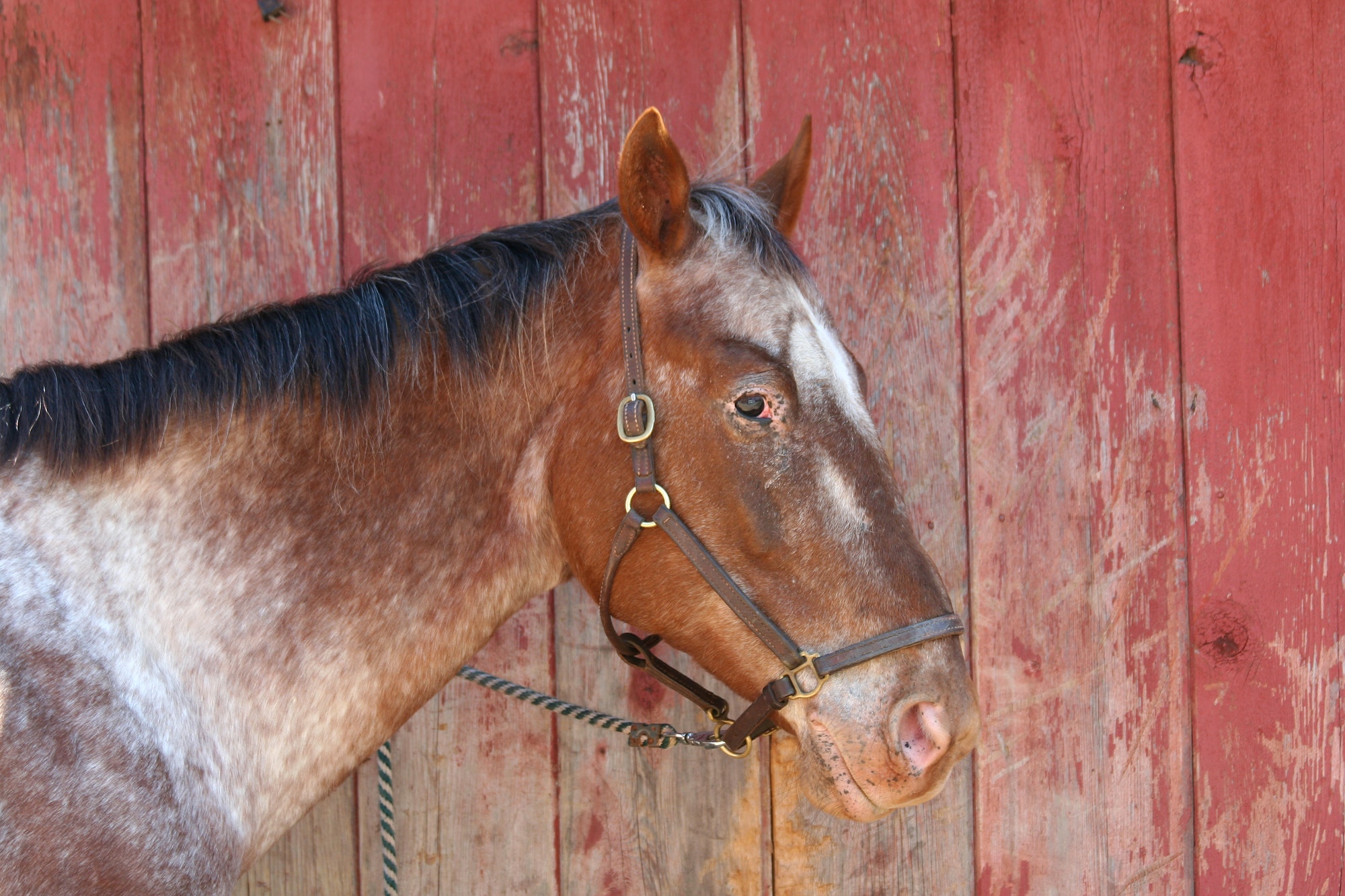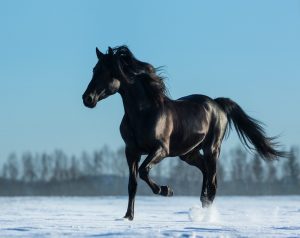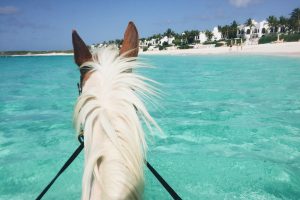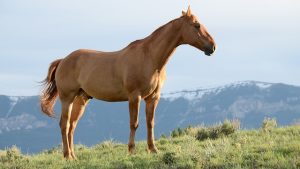Are you wondering how long do horses live? Asking this question is vital in making the right decisions regarding housing, food, and medical needs. As a horse parent, you might want to give your four-legged companion the best to reap old age with good health. In this article, we will talk about the life expectancy of horses. We will also share with you the factors that affect their lifespan and some tips to help your horse live longer.
According to the Ontario Ministry of Agriculture, the average lifespan of domestic horses typically ranges from 25-33 years old. Yet some horses exceed the expected lifespan. In fact, the oldest living horse ever recorded named Old Billy was reported to be approximately 62 years old. However, their life expectancy depends on the breed and lifestyle. Notice how the longevity of horses varies from breed to breed.
Average Life Expectancy of Popular Horse Breeds
The life of your horse depends on different external factors and circumstances. Understanding and knowing the breeds can give you an idea of your horse’s life expectancy. Here’s a look at the lifespan of horses to provide you with an insight.
Famous Breeds of Horses and their Average Lifespan:
- Thoroughbred- 25 – 28 years
- Quarter Horse- 25 – 35 years
- Arabian- 25 – 35 years
- Appaloosa- 25 – 33 years
- Miniature horse- 25 – 35 years
- Shire- 25 – 30 years
- Clydesdale- 20 – 25 years
Thanks to the advances in veterinary medicine, equines today can live longer through a healthy diet and exercise. Ponies tend to live longer than horses, and many ponies are still doing fine as schoolmasters in their 30s. But what are the factors that affect their longevity? Let’s break them down.
Factors that Affects the Longevity of Horses
Breed & workload
Many of the horse breeds were developed for specific works and uses. Large horse breeds like draft horses do more intensive and riskier jobs, which shorten their life expectancy. Thus, bigger horses like drafts tend to have shorter lives than other horses. Furthermore, racehorses like thoroughbreds engage in a dangerous sport and may sustain severe injuries from which they could not recover. But if they are well-maintained, they can live up to 30 years.
Disease
Disorders caused by overbreeding is also common in horses. Arabian horses, for example, can produce immune-deficient foals while Appaloosas are prone to genetic disorders that cause eye problems. Another disease that is prevalent in ponies and Morgan horses but can affect all types of horse is the Cushing’s disease or the Pituitary Pars Intermedia Dysfunction (PPID). The common signs of PPID are weight loss, lethargy, laminitis, increased sweating, drinking, and urinating. Although it does not directly kill the horses, it can lead to several fatal health issues. And most of the time, colic and other gastrointestinal problems that cause constant pain and soundness issues force owners to euthanize their horse even if it hasn’t lived out its natural lifespan yet.
Diet and Nutrition
It plays a significant role in the health and overall life expectancy of your horse. A horse that grazes on high-quality pastures and enough supplements has better health than a horse that is fed with a low-quality feed.
How to Determine the Age of a Horse
The age or date of birth of a horse is recorded on registration papers or traveling/competition passport. So, if you have these identifying documents, you can quickly determine the age of your horse. But if these are not available, examining their teeth can be an alternative method to estimate their age. Although it’s not 100% accurate, it will help you when to consider your horse as a senior. Here are different ways to examine your horse’s teeth, depending on your horse’s life stage:
Teeth Color
The color of a horse’s teeth gradually changes as they grow. Young horses have white milk teeth, while permanent teeth that replace them at two and a half to 5 years of age are creamy yellow. As horses get older and pass 20 years old, their teeth will become brown.
Baby Teeth
The age of a young horse can be determined by inspecting which teeth are present and which ones are lost.
Permanent Teeth
When your horse passes the age of 10, its permanent teeth are all present and fully developed. So, this method is only precise at the age of 9 or 10.
Estimating by other factors
Determining the age of your horse can be tricky if they already have all sets of teeth. The best way to tell its age is to have a more in-depth examination of the shape, color, angle of growth, and other factors.
How to Help your Horse Live Longer
Here are some tips on how to prolong the lifespan of your horse and make the most out of its life.
Proper Feeding
As mentioned above, feeding your horse with healthy food is essential to prolong its lifespan. Horses need quality pasture or hay, grain, and supplement to attain adequate vitamins and minerals that its body requires. You must also provide access to continuous fresh water to keep them hydrated and avoid developing health issues.
It’s also important to calculate the right amount of food for your horse to prevent overfeeding that can lead to being overweight. Generally, a horse needs a feed that is about 1.5 to 2 percent of its body weight. So, if your horse weighs 1,000 pounds, it needs 15 to 20 pounds of feed per day. Feeding time is also significant for its overall digestive health, so it is preferable to feed it at the same time, especially for older horses.
Regular Exercise
One of the best ways to avoid degenerative musculoskeletal conditions like laminitis and arthritis is to keep your horse active through exercise and proper management. These diseases are more prevalent on older horses since their cartilage and muscle fibers are more brittle and susceptible to damage that can cause lameness. Therefore, even if your horses are now retired, try going on a trail or let them walk on a walker or any physical exercise to make them move. Another way to protect your horse from these conditions is pasture housing.
Enough Rest Time
It is one of the most significant parts of your horse’s day, but it must be balanced with fitness. The rest time depends on the workload, age, and condition of your horse. Overworking can cause mental tiredness, soreness, stiffness, and overuse injuries, so relaxation is essential for better health.
Proper Dental Care
Horses also require regular dental check-ups. Domesticated horses that are fed in a stable will probably miss the natural filing down of teeth that happen if a horse grazes on a pasture. So, they need to have their teeth floated once a year to get it filing down and to remove sharp edges at the corners of their teeth.
As a horse grows older, they may start to lose their teeth, which will cause trouble in chewing and breaking down of food. So, more dental care is required.
Hoof Care
The hooves of a horse carry its full weight, and poor management of this vital body part can lead to a gradual decline in its health. That is why regular hoof care is essential and frequent examination is necessary, most notably for unshod horses.
As you have probably noticed, the principles that apply for human longevity are also applicable to horses. They all need a healthy diet, exercise, and regular medical check-ups. Local veterinarians can also provide comprehensive information regarding horse management. They can examine your pet when it’s sick and record its health history to give the best recommendations. It’s best to consult them before making big decisions.
So that’s how long horses live and how to prolong their lifespan. We hope that this article is helpful to you. If you would apply all the tips mentioned above and regularly consult your veterinarian, your horses can live longer. And who knows? It might be the next Old Billy in the history of equines.





